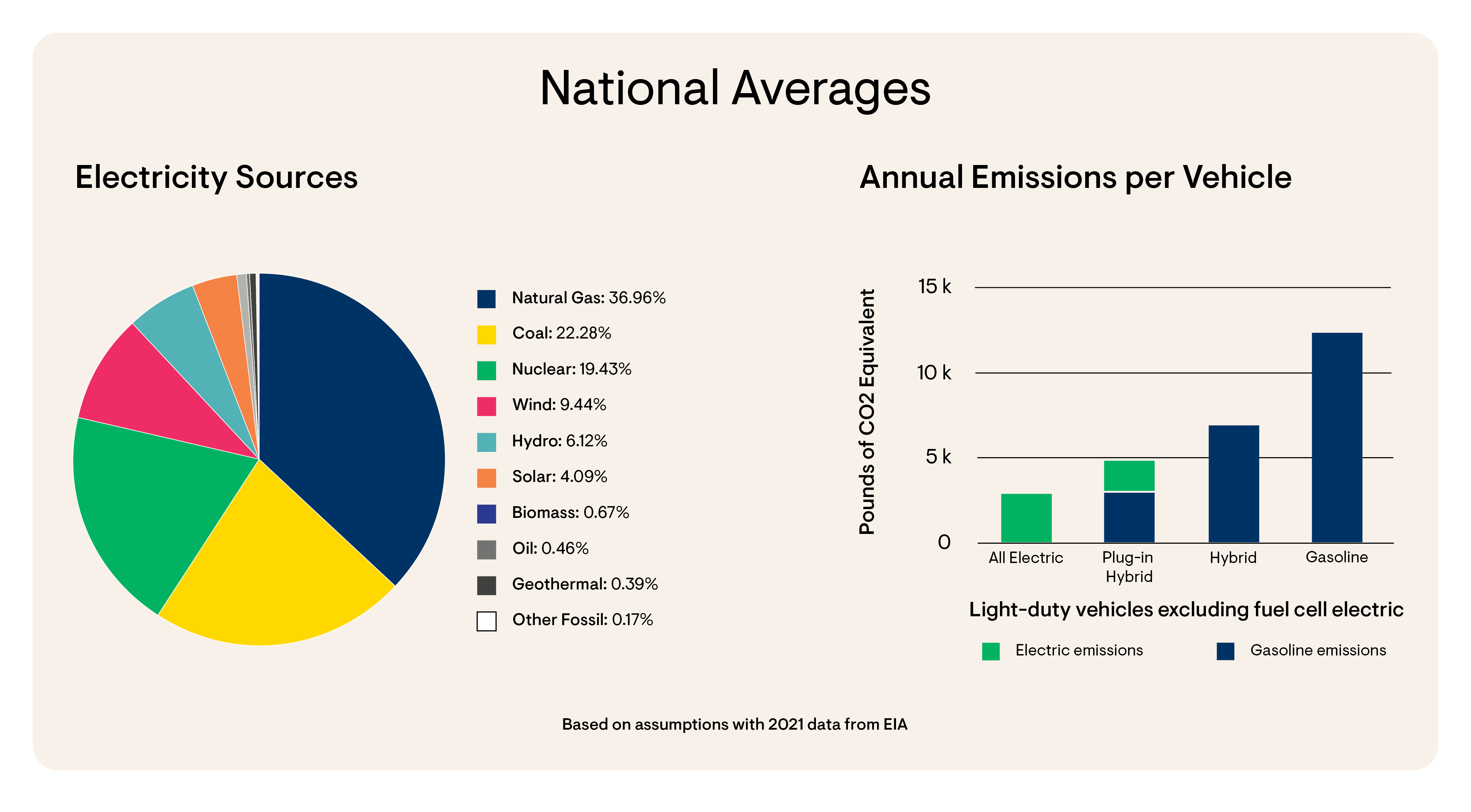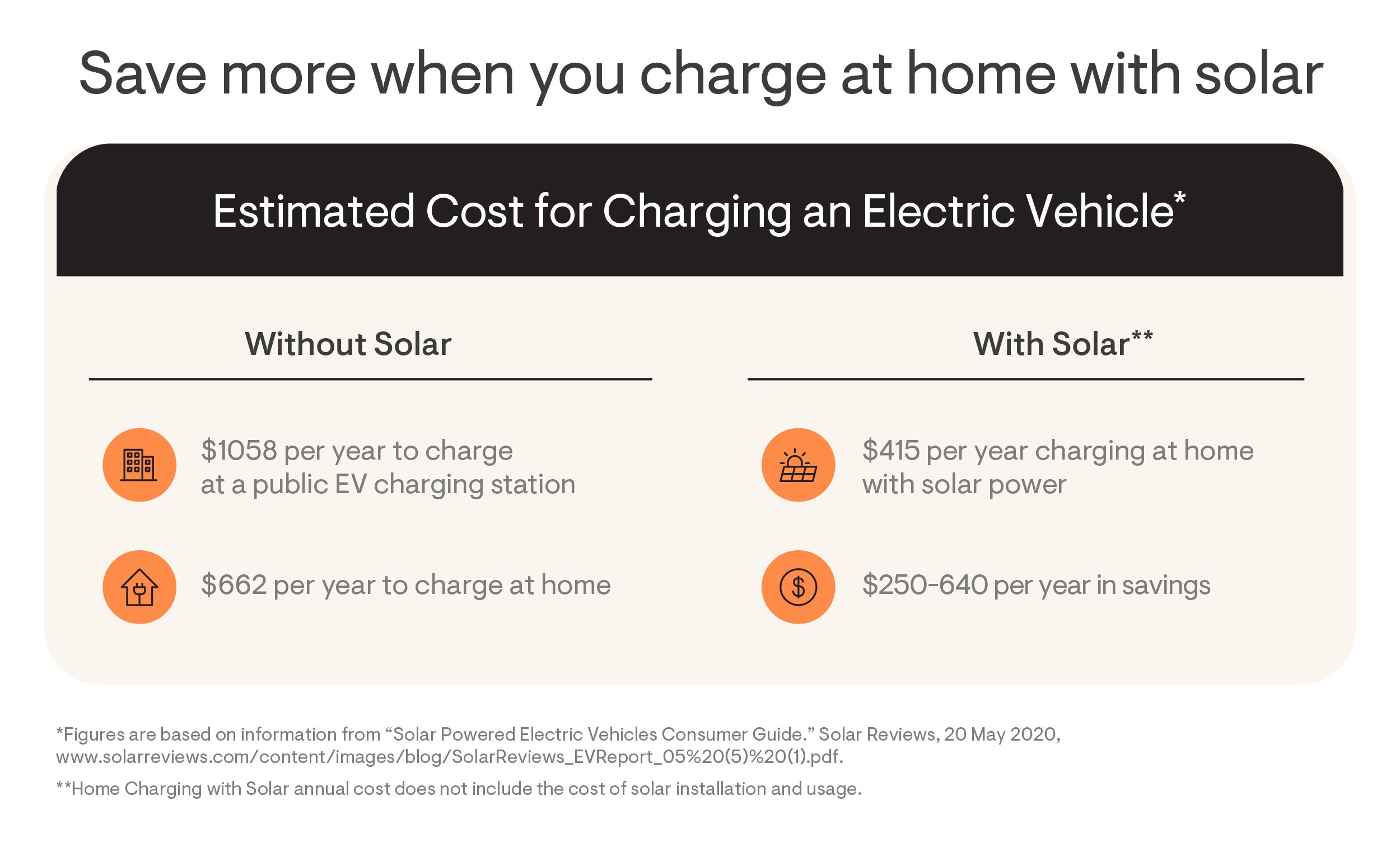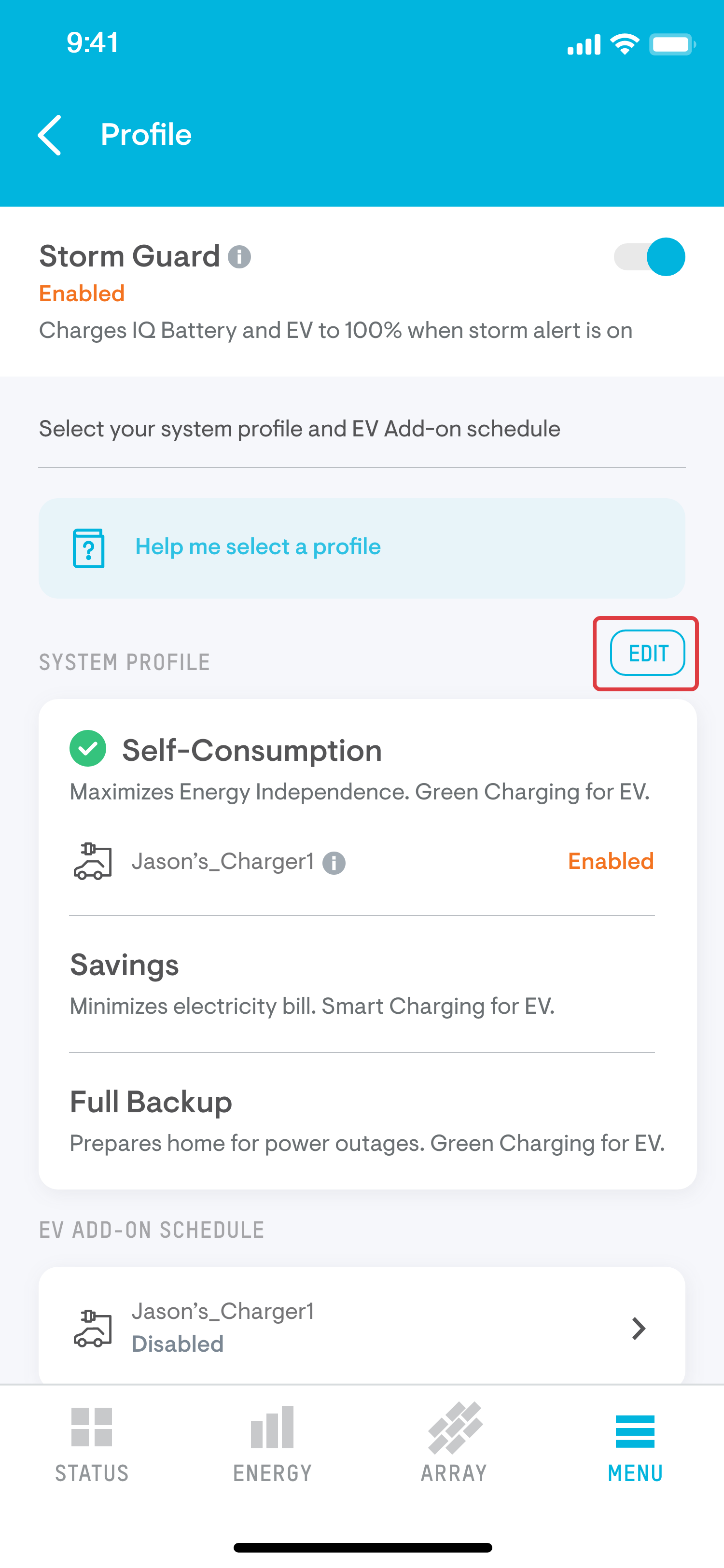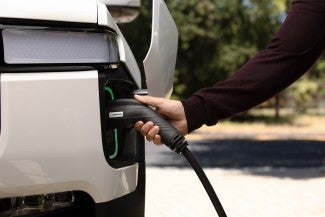Thanks to the rapid adoption of electric vehicles worldwide, drivers everywhere are reducing roadway pollution levels by replacing traditional combustion engines with battery powered electric vehicles (EVs). In addition to eliminating tailpipe emissions, EVs have a lower lifetime carbon footprint than gasoline-powered vehicles, including total greenhouse gas (GHG) production from manufacturing, charging, and driving. However, before EVs are considered truly sustainable, it is critical to decarbonize the power used to charge them. To minimize the total greenhouse gas (GHG) emissions of EVs, sustainable EV charging is the best path forward to reach a net-zero future.
What is sustainable EV charging?
Sustainable EV charging enables owners to power their vehicles with clean-energy sources like solar or wind power. Compared to running an EV on electricity generated from fossil fuels, clean resources help drivers minimize their environmental impact while gaining more control over their energy costs and ongoing access to power.
The impact of clean power for EVs
In the United States, transportation is the most significant contributor to GHG emissions by sector, with cars, trucks, busses, boats, airplanes, and other modes of travel accounting for more than 600 billion metric tons of CO2 (or 27% of national emissions) in 2020.
Although EVs help curb some of this pollution, many environmental benefits of switching to electric transportation are lost when powered by fossil fuels. With a national network of 500,000 public EV chargers planned by the end of the decade, to power these resources with sustainable energy, they can offset potential CO2 emissions and reduce strain on the electric grid.

According to Alternative Fuels Data Center information, clean energy sources like solar, wind, geothermal, biomass, and low-impact hydro generated approximately 20% of the electricity used to charge EVs in the United States in 2021. While 60% of EV power in the study was traced back to natural gas and coal, there is still massive potential for EV drivers to adopt clean energy and move away from fossil fuels.
Both for independent energy system owners and grid power implementation at scale, sustainable EV charging can support the growth of electric vehicle adoption in the United States, lower average fuel costs, and help to create a cleaner and more sustainable energy grid.
The role of solar energy
Today, there is no easier way to produce renewable electricity at home or on a commercial property than with a photovoltaic (PV) solar panel system.
After installing solar panels and interconnecting an EV charger, you can unlock the potential to power your vehicle with a free and infinite supply of direct sunlight. Of course, in addition to lowering your carbon emissions, solar energy systems can also reduce your charging costs compared to grid-supplied power.
Expert surveys estimate that it costs about $1,058 annually to charge an EV at public charging stations, or $662 per year at home. By installing a PV system and charging your vehicle with solar power, you can reduce the cost to about $415 annually, saving an average of $250 per year on your home power costs for EV travel.
Considering the steady year-over-year increases in utility rates across the country, charging your EV with solar can lead to exponential savings over time.

Looking ahead
With upcoming developments like bidirectional EV charging enabling vehicle-to-grid (V2G) technology, renewable power and electric transportation capabilities are complementary. By sending electricity from an EV to the grid, owners can trade, share, or sell their battery power to other users and become financially compensated for their contributions.
When EV charging is integrated with a home battery system, owners can continue to charge their vehicles during local blackouts and avoid expensive utility power during periods of high energy demand.
Sustainable charging powered by Enphase
Incorporating an IQ EV charger into your Enphase Energy System enables sustainable charging with a button. All controlled through the Enphase app, the Self-Consumption profile can automatically send excess solar power produced by your home solar system directly into your vehicle's battery reserve.

Using your excess solar power can help reduce your environmental impact and lower the cost to power your vehicle. To further minimize power expenses, ensure your EV charges only during off-peak hours when you are able. Enphase EV chargers are also ENERGY STAR® Certified, consuming minimal stand-by power when not in use.
Enphase's IQ EV chargers connect to the cloud through the Enphase mobile app, which allows you to remotely manage and control how and when you charge your EV. With operating modes to intelligently manage your electricity around time-of-use billing and help you prepare for potential outages, Enphase systems can optimize the energy for your home or business.
Discover your sustainable charging options
With hardwired and plug-in options available for all EV makes and models, begin your sustainable charging journey with Enphase today.


